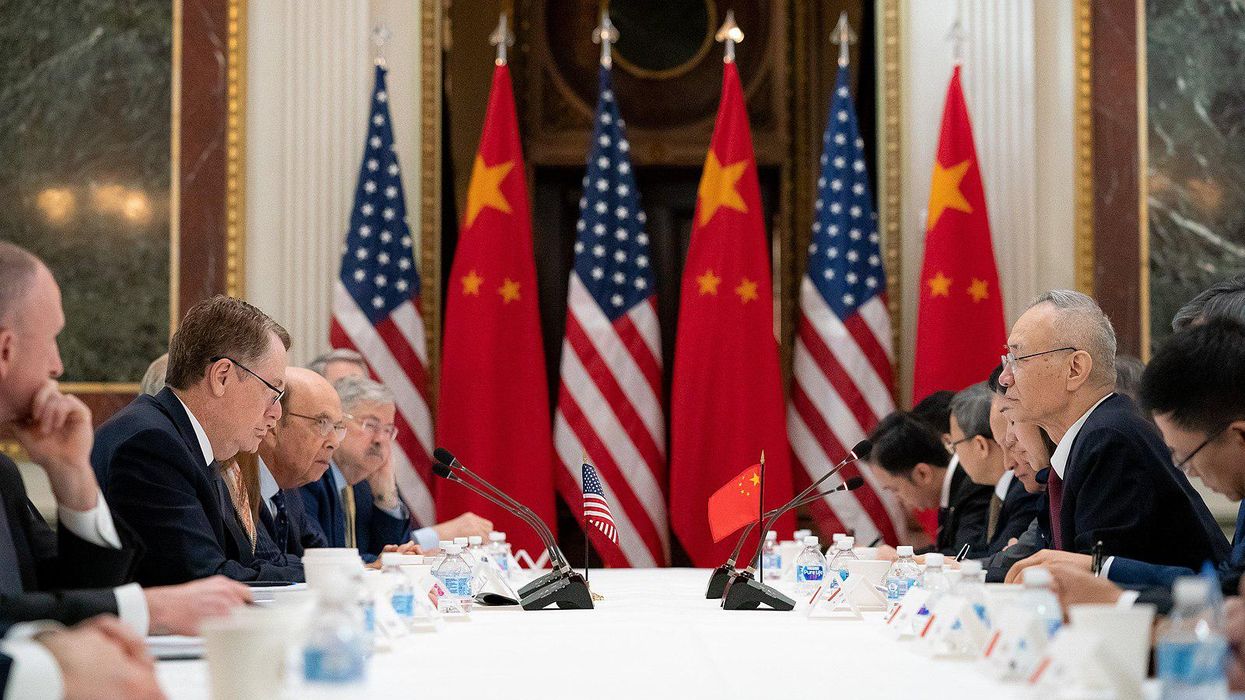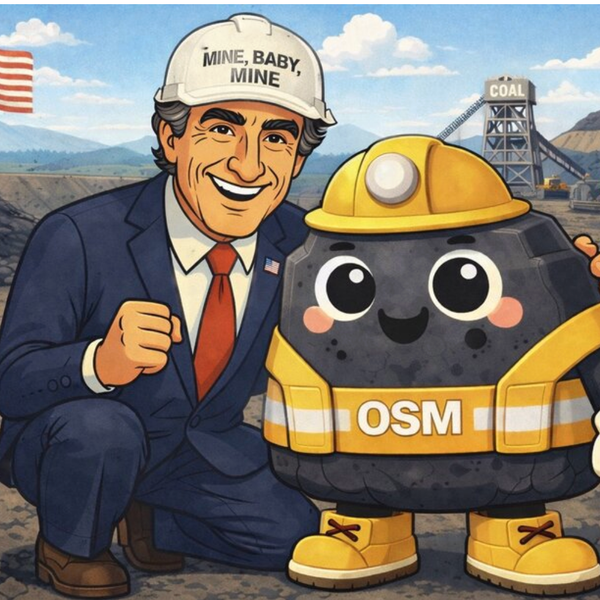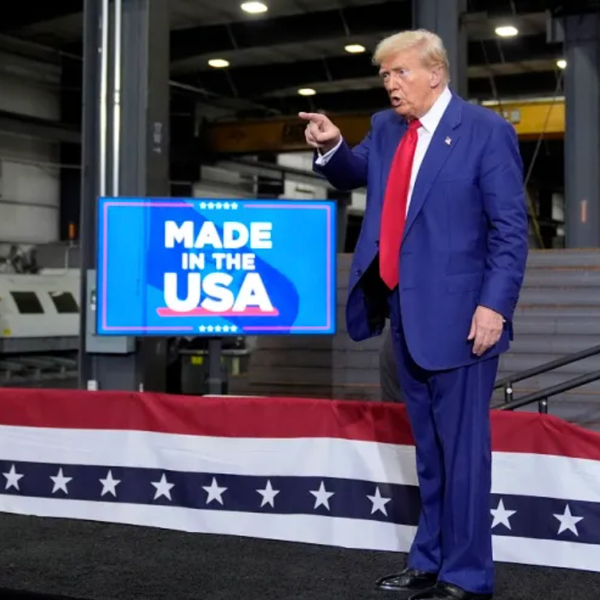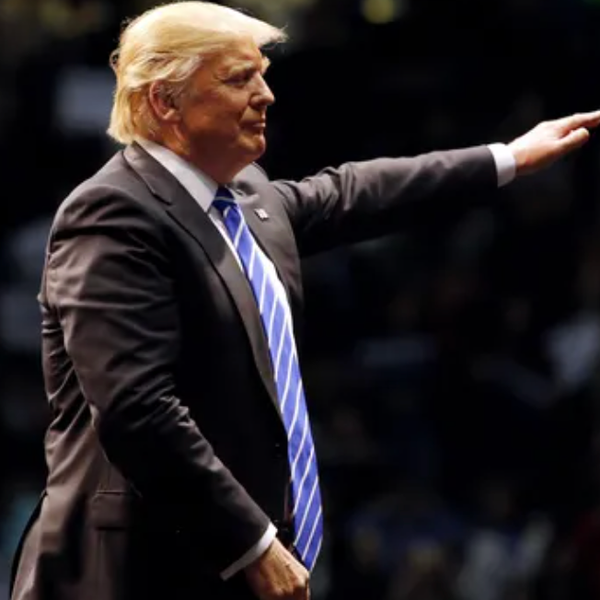
US-China Trade negotiations during the Trump administration
When he became president, Joe Biden summarily reversed his predecessor's policies on a range of issues, including climate change, immigration, taxes, social welfare and police reform. But on international trade, it's almost like Donald Trump never left.
Trump had a primitive view of this issue. Good, in his view, were exports, trade surpluses, tariffs and trade wars. Bad were imports, trade deficits and multilateral trade agreements.
He saw global commerce as a zero-sum game, in which anything that benefited another country must come at our expense, and vice versa. He was unable to grasp that exchanges of goods and services across national borders could — and do — make people in every nation better off.
So, Trump slapped tariffs on steel, aluminum, solar panels and washing machines. He put tariffs on some $360 billion worth of Chinese apparel, appliances, machinery, shoes and more. He threatened to slap import taxes on cars made abroad.
He pulled out of the Trans-Pacific Partnership, a free-trade accord with 11 other countries. He ended talks on the Transatlantic Trade and Investment Partnership, a major effort to lower trade barriers between the U.S. and the European Union. He nullified the World Trade Organization, which resolves trade disputes, by blocking the appointment of new members to the body that hears those cases.
But his efforts accomplished nothing worthwhile. They raised prices to American consumers while punishing American companies that use steel and aluminum. What the Tax Foundation described as "one of the largest tax increases in decades" now costs the typical American family more than $1,200 a year.
The tariffs failed to create jobs in the steel industry, which shrank even before the pandemic, and produced only a tiny boost in aluminum jobs. But a study by economists at the consulting firm The Trade Partnership estimated they would eliminate some 145,000 jobs in other sectors.
Our trading partners retaliated against U.S. companies with tariffs of their own. American farmers were hit so hard that Trump had to come up with $23 billion to cushion the blow.
Nor did his strategy reduce our trade deficits. The overall U.S. trade deficit last year was the biggest since 2008. China has not given up the practices Trump was trying to stop.
In March, Gallup found that 63 percent of Americans — including 79 percent of Democrats — have a positive view of trade, with only 32 percent disagreeing. Biden was part of the Obama administration, which negotiated the Pacific trade deal and pressed hard to reach an agreement with the EU. But the Democratic Party has somehow fallen under the sway of protectionists, and he's shown little interest in resisting.
He's left most of Trump's tariffs in place, and his trade representative, Katherine Tai, said removing them would be a bad idea. She vowed a "worker-centric" trade policy focused on raising wages, omitting such goals as expanding commerce and fostering competition. Her stance fits the prevailing progressive superstition that commerce with the world makes us poorer.
That view is bad economics and bad history. In her 2019 book Open: The Progressive Case for Free Trade, Immigration and Global Capital, Reed College economist Kimberly Clausing argues that tariffs "harm consumers, with particularly harmful effects for low- and middle-income workers," while creating disruptions that eliminate jobs in affected industries. Nearly nine out of ten losses in manufacturing jobs, she notes, are the result of technological advances, not international competition.
Trump portrayed China as a ruthless predator that exploits global rules for competitive advantage. But that's the very reason that he should have kept the U.S. in the Trans-Pacific Partnership, which was designed to facilitate trade among the Pacific Rim countries — not including China.
It would have put strong pressure on Beijing to reform its trade practices to gain admission. But with the TPP dead at Trump's hands, 15 Asian countries opted for a different trade agreement. In this accord, China is in, and the U.S. is out.
Trump's sabotage of the WTO's appellate body was another own goal. From 2002 through 2018, it had heard 23 cases involving disputes between the U.S. and China — with the U.S. winning 20 and China winning zero (with three pending). The U.S. should be pushing the WTO to crack down on China's abuses, not kneecapping the only system for addressing them.
As a rule, any policy Trump embraced is one that ought to be abandoned. Trade is not the exception.
Steve Chapman blogs at http://www.chicagotribune.com/news/opinion/chapman. Follow him on Twitter @SteveChapman13 or at https://www.facebook.com/stevechapman13. To find out more about Steve Chapman and read features by other Creators Syndicate writers and cartoonists, visit the Creators Syndicate website at www.creators.com.
- How Biden Can Curtail Terrorism, Tax Evasion, And Money ... ›
- New Research Exposes Costs And Lies Of Trump's Trade War ... ›
- China Rivalry: Is Cold War Still Possible In An Overheating World? - National Memo ›
- What Is Former Vice President Biden's Policy on Trade? | Center for ... ›
- U.S., China to assess Phase 1 deal soon, Biden trade chief says ... ›
- Biden's trade agenda is a departure from Trump and Democratic ... ›
- Biden administration releases report on trade agenda, China ... ›
- US-China trade: Biden representative holds 'candid' talks with ... ›
- Biden Continues Trump's Misguided Trade Policies ›
- After Trump: What Will Biden Do on Trade? | Council on Foreign ... ›








